Clinic alumni take top spots in The Forge’s Startup Survivor pitch competition
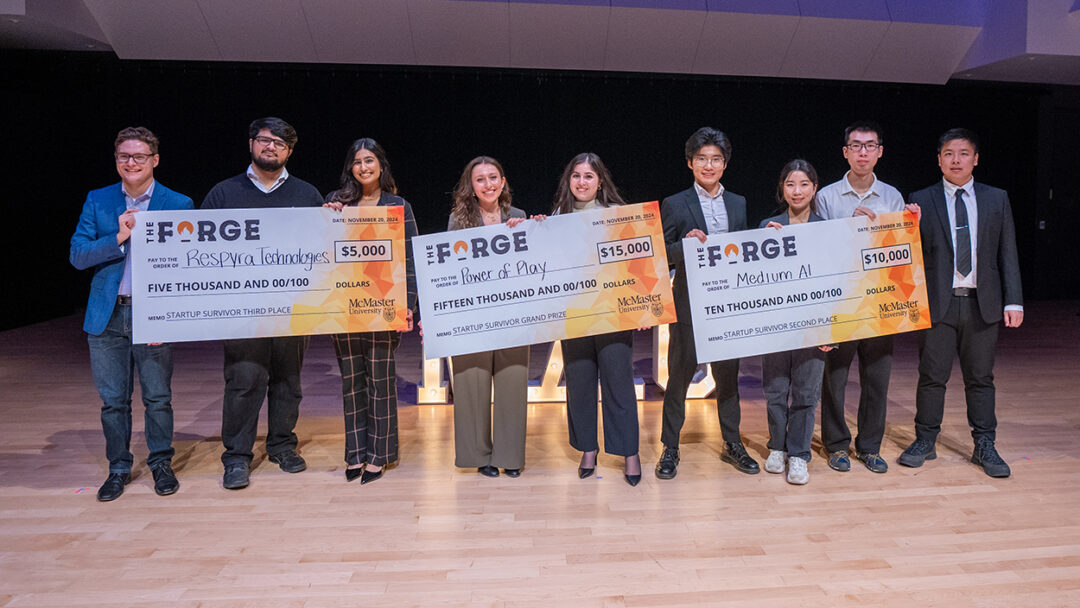
By Eileen Hoftyzer
Three teams that have completed innovation programs at The Clinic health innovation hub took the top spots at The Forge’s Startup Survivor pitch competition held last week. This is the second consecutive year where members of The Clinic received the top three awards, sweeping the competition.
“It was exciting to have four of the five finalists at this year’s Startup Survivor pitch competition part of The Clinic community,” says Shaaf Farooq, program manager at The Clinic. “We are proud to see program alumni continue to achieve success building on the entrepreneurship foundations they have learned through The Clinic’s programming, including how to create an award-winning pitch.”
Power of Play, co-founded by Deena Al-Sammak and Rooaa Shanshal, won first place in the competition, earning $15,000 to advance commercialization of their innovative device that measures grip strength in children. Medium AI and Respyra Technologies placed second and third, respectively.
“We are extremely proud of the progress that Power of Play has made and are so grateful for our mentors, who have supported us as entrepreneurs and given us the confidence to move forward despite any challenges or setbacks,” says Al-Sammak.
“Winning the Startup Survivor competition reminds us that the sacrifices that we have been making to make this happen are paying off, and we are very proud of the outcomes.”
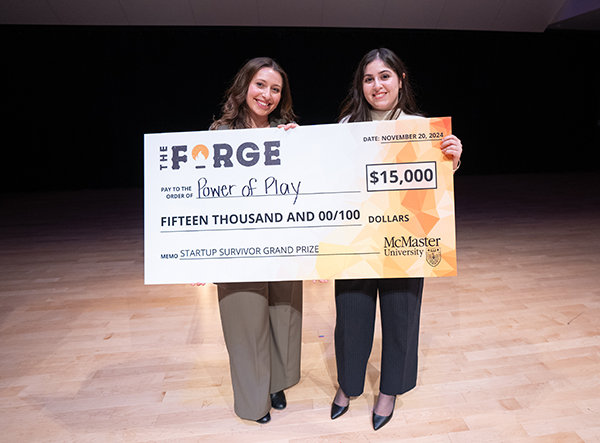
Startup Survivor is a four-month program run by The Forge, a business incubator at McMaster University. Throughout the program, teams complete challenges designed to help advance their innovation and build their business, with support from mentors and industry experts. The top teams compete in a final pitch competition, vying for a total of $30,000 in investment.
Power of Play’s Al-Sammak and Shanshal, students in McMaster’s Integrated Biomedical Engineering and Health Sciences (iBioMed) program, developed a device to measure grip strength in children, filling a clinical gap for occupational therapists who work with children.
The pair started developing the device, in collaboration with occupational therapists at Hamilton Health Sciences, as part of an engineering economics course. Al-Sammak then participated in the Health Innovation Bootcamp and Residency @ The Clinic to drive their device and start-up company forward. Power of Play also recently received funding through the DRIVE Spark pitch competition at Hamilton Health Sciences.
Al-Sammak says The Clinic offered a supportive and constructive environment to gain experience in pitching and developing the business, which has been essential to their success.
“Everyone in The Clinic programs is new to innovation and trying to learn together, so it was a really nice environment in that way,’” says Al-Sammak. “It helped us see some of the potential of what we can do with the device and how we could progress our product development, so it was an important stepping stone to help move things forward.”
Medium AI, pitched by Kino Song, a graduate of McMaster’s Mechanical Engineering program in 2024, received second place and $10,000 in the pitch competition. Medium AI is medical scribe software that helps health care providers manage patient documentation in multiple languages.
Song participated in The Clinic’s Health Innovation Bootcamp in the fall of 2023, which he says provided a strong foundational knowledge in health care and innovation.
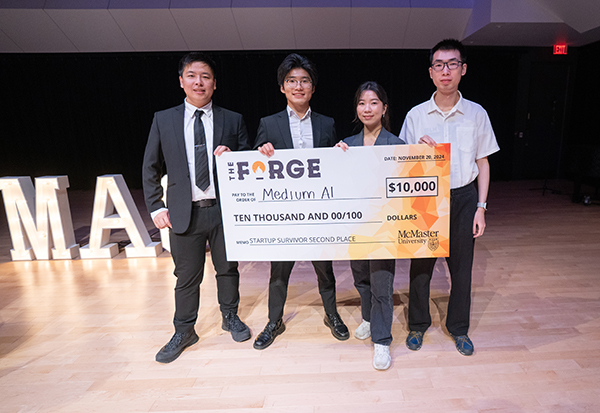
“The Bootcamp provided a lot of resources and insight into healthcare industries and connected us with experts from health care, health research and health science entrepreneurship,” says Song. “I found the workshops and guest speakers to be very helpful for both networking and opening our mind to the field of health science innovation.”
Hunter Csetri, who just completed the Master of Biomedical Innovation (MBI) program at McMaster’s Marnix E. Heersink School of Biomedical Innovation and Entrepreneurship, pitched on behalf of Respyra Technologies, which placed third and earned $5,000. Their device, the Manipulet, is a flexible stylet that health professionals can maneuver to intubate patients quicker and more easily.
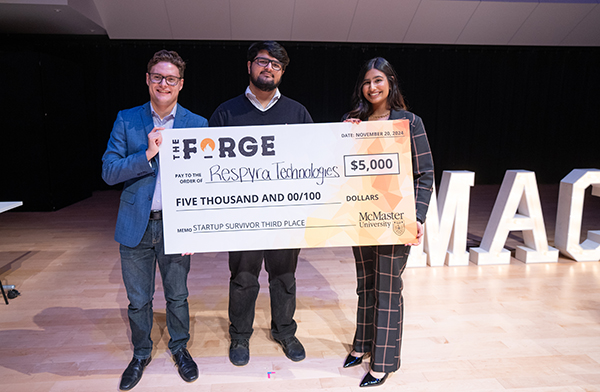
Csetri participated in the Residency @ The Clinic and volunteered with the Health Innovation Bootcamp prior to applying to Startup Survivor. He says the nine-month Residency @ The Clinic provided networking opportunities and an introduction to innovation and commercialization that provided a solid foundation for both the MBI program and the faster-paced Startup Survivor.
“Startup Survivor pushed us forward and gave us clear goals that really allowed us to advance the business, but I’m glad we did the Residency first to try out new things, gain experience and see what works before we went into a more intense program,” says Csetri. “We also learned how to speak confidently about our idea, which is so important for pitching.”
The fourth Clinic alumni team to participate in the Startup Survivor pitch competition was Winged Wheelchairs, pitched by Bohdan Mozharivsky from the Faculty of Engineering. Mozharivsky and his team are developing a device that allows manual wheelchair users with limited hand functionality to independently propel their wheelchairs without grasping the push wheel, eliminating hand pain and discomfort.
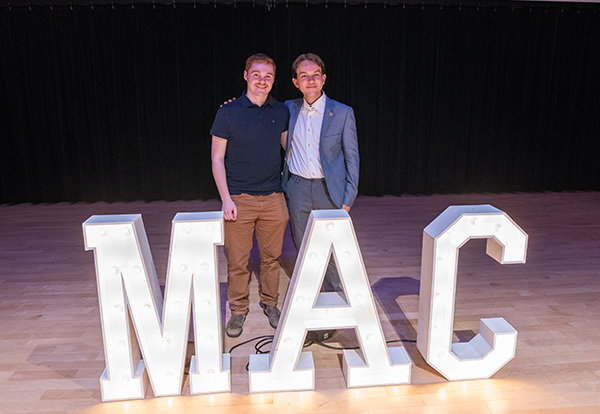
“These health innovators and entrepreneurs are going to continue on to impact health care and patient lives,” says Farooq, “And The Clinic will always be in their corner offering support and cheering them on.”
To learn more about The Clinic’s programs and entrepreneurial training for early-stage health startups, visit healthinnovation.mcmaster.ca.
Awards and Recognition, Residency Highlight, The Clinic

